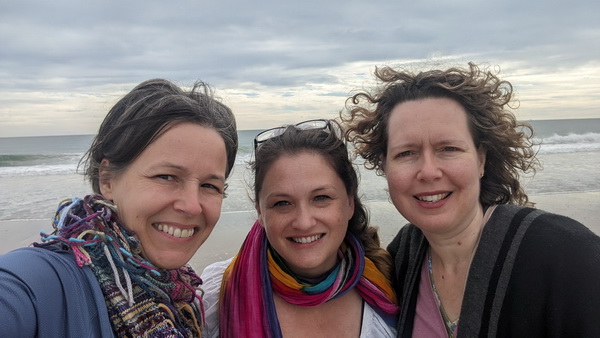Editor’s Notebook: “On Connection”
January 2024

Not every literary magazine aims to make a whole of their individual selections for publication, but we do, at Waterwheel Review, thinking deeply about how accepted pieces speak to and support each other—via theme, voice, approach; even, sometimes, the look on the page. We connect each publication to other art, too—image or video or song—by placing it as the centerpiece of a triptych, and we actively work at linking the triptychs with a color scheme, through repeated elements of images, sometimes via sound. And we select a quote for each issue, one that serves as an umbrella-thought for all three publications.
“I’m obsessed with relationships,” says my co-editor Suzanne, the mastermind of Issue 32. We invest so much in connecting every kind of art on our homepage, threading relationship through it all. Every moment of that work and every element of the outcome feeds Suzanne, and something, some weeks ago, made her wonder what new relationships we might discover at our own website. She suggested that for our January issue, we select a quote that felt right to us for the season—of the calendar and our mission, individually as writers and collectively as co-editors of this magazine—and then go hunting in our archives for pieces that would fit both the quote and each other.
The issue came together quickly, the original triptychs fitting seamlessly together. So satisfying.
Suzanne’s brainstorm makes me think of all the creative connections we make in our own work, once we embrace constraint. Writing prompts work because they harness otherwise inchoate creative energy. Conceits work in a similar way—think a hermit crab essay, a stylized voice, a motif that will not be moved. Applying a “rule” to your work will inspire you to subvert it. I have so many times seen a constraint spark new relationship between apparently disparate images or ideas in my own developing work or that of friends. What a joy to see that same kind of process here, making something wholly new of what we thought we already fully understood.
–Claire Guyton


